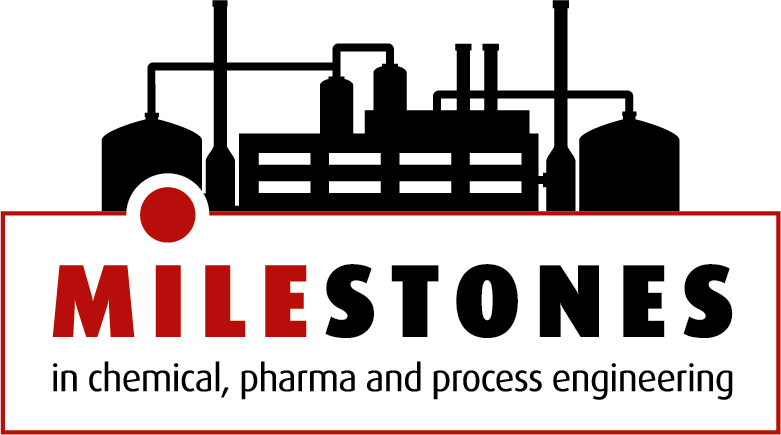:quality(80)/images.vogel.de/vogelonline/bdb/1811700/1811762/original.jpg)
Denmark: Pharma Innovation Continuous Manufacturing Technology Could Reduce Pharma Industry’s Use of Toxic Chemicals
Jens Bukrinski, Chief R&D Officer, SB3000 has recently stated in a conference that its continuous manufacturing μLOT technology could reduce the pharmaceutical industry’s use of toxic chemicals by 100 times.
Related Companies

Copenhagen/Denmark – Speaking at the ‘Innovative Chemistry for Peptide Manufacturing and Analysis’ conference, SB3000’s Chief R&D Officer Jens Bukrinski revealed that the continuous manufacturing μLOT technology could reduce the pharmaceutical industry’s use of toxic chemicals by 100 times.
Batch manufacturing has long been the standard for peptide pharmaceutical manufacturing, but it is hugely inefficient, requiring massive facilities and vast quantities of toxic raw materials. Peptide manufacturing is also one of the most wasteful and least green chemical processes, and peptide synthesis is almost universally carried out in toxic solvents. Typically, over 4000 kg of toxic solvents are required to produce just one kilo of drug.
In contrast, innovative the μLOT continuous manufacturing enabling technology uses a chemical production line which can be constantly monitored in real time, uses just a tenth of the solvent required in batch processing and being modular is easily moved.
The FDA is actively encouraging a move to continuous manufacturing in the pharma industry. It has recognized that continuous manufacturing will reduce drug shortages, minimize batch manufacturing scale-up issues, and enable shorter process times, improve quality control, generate smaller footprints, and increased flexibility in scale.
Jens commented during his presentation at the virtual ‘Innovative Chemistry for Peptide Manufacturing and Analysis’ conference, “μLOT allows for continuous manufacturing of peptides at large scale, with hugely reduced environmental impact. For example, liraglutideiii is currently manufactured as a recombinant peptide in yeast. If manufactured synthetically with current batch SPPS it would generate 16,000 tons of toxic waste per year. Switching to continuous manufacturing using μLOT would cut toxic waste by 100 times to just 160 tons toxic waste per year.”
He concluded, “As pressure mounts on the pharmaceutical industry to cut its use of toxic chemicals, the case for adopting μLOT continuous manufacturing become indisputable.”
(ID:47304646)




:quality(80)/images.vogel.de/vogelonline/bdb/1811000/1811058/original.jpg)
:quality(80)/images.vogel.de/vogelonline/bdb/1810300/1810381/original.jpg)
:quality(80)/images.vogel.de/vogelonline/bdb/1810400/1810405/original.jpg)
:quality(80)/images.vogel.de/vogelonline/bdb/1811600/1811648/original.jpg)
:quality(80)/images.vogel.de/vogelonline/bdb/1811600/1811693/original.jpg)
:quality(80)/images.vogel.de/vogelonline/bdb/1810900/1810999/original.jpg)
:quality(80)/images.vogel.de/vogelonline/bdb/1810400/1810411/original.jpg)
:quality(80)/images.vogel.de/vogelonline/bdb/1797000/1797083/original.jpg)
:quality(80)/images.vogel.de/vogelonline/bdb/1794500/1794521/original.jpg)
:quality(80)/images.vogel.de/vogelonline/bdb/1795400/1795494/original.jpg)
:quality(80)/images.vogel.de/vogelonline/bdb/1793300/1793348/original.jpg)
:quality(80)/images.vogel.de/vogelonline/bdb/1811700/1811727/original.jpg)
:quality(80)/images.vogel.de/vogelonline/bdb/1806300/1806380/original.jpg)
:quality(80)/images.vogel.de/vogelonline/bdb/1805900/1805911/original.jpg)
:quality(80)/images.vogel.de/vogelonline/bdb/1803800/1803811/original.jpg)
:quality(80)/images.vogel.de/vogelonline/bdb/1809100/1809168/original.jpg)
:quality(80)/images.vogel.de/vogelonline/bdb/1804300/1804360/original.jpg)
:quality(80)/images.vogel.de/vogelonline/bdb/1793300/1793360/original.jpg)
:quality(80)/images.vogel.de/vogelonline/bdb/1790500/1790551/original.jpg)
:quality(80)/images.vogel.de/vogelonline/bdb/1811600/1811657/original.jpg)
:quality(80)/images.vogel.de/vogelonline/bdb/1811000/1811033/original.jpg)
:quality(80)/images.vogel.de/vogelonline/bdb/1811000/1811015/original.jpg)
:quality(80)/images.vogel.de/vogelonline/bdb/1807900/1807985/original.jpg)
:quality(80)/images.vogel.de/vogelonline/bdb/1797900/1797927/original.jpg)
:quality(80)/images.vogel.de/vogelonline/bdb/1797600/1797603/original.jpg)
:fill(fff,0)/images.vogel.de/vogelonline/companyimg/34300/34309/65.jpg)
:fill(fff,0)/p7i.vogel.de/companies/5f/98/5f98fbb2e7bf2/05-trm-filter-logo-with-slogan-en-alt.png)

:quality(80)/images.vogel.de/vogelonline/bdb/1734400/1734473/original.jpg)
:quality(80)/images.vogel.de/vogelonline/bdb/1771100/1771188/original.jpg)